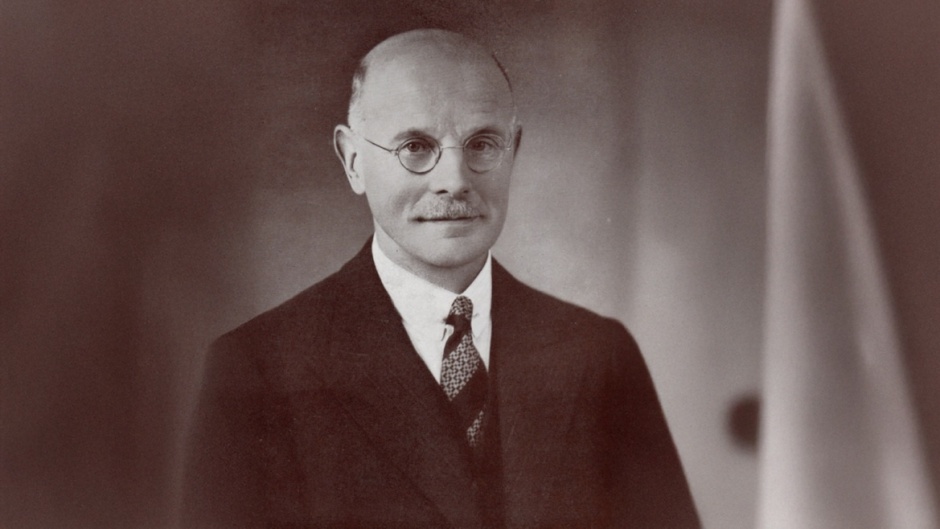The story of Sir John Laing, a British engineer who had a great impact on business and missionary work.
 Sir John Laing (1879–1978), British businessman and philanthropist.
Sir John Laing (1879–1978), British businessman and philanthropist.
At a time when business success is measured by profit and expansion, the life of Sir John Laing offers a radically different model.
He was a leader who put his company at the service of God, channelling hundreds of millions into discreet donations, boosting global evangelical work, and leaving a legacy of integrity, generosity, and Christian vision.
If there is one thing that all Christian entities lack, it is sufficient resources to carry out the mission and vision they have received from the Lord adequately.
This is a sensitive issue, as there are many prejudices, especially in predominantly Catholic societies, regarding the resources churches possess and how they are used (or misused). These prejudices, whether right or wrong, prevent many people who wish to support God's work from giving donations.
Catholic culture has reduced giving to churches to mere almsgiving, and that affects the Protestant world as well.
The gospel urges us to see our financial resources as something that belongs to the King of Kings, not to us, and that we are mere stewards. Many books and articles have already been written about tithing, so there is no need for me to insist on it as it is a well-known topic.
We are all stewards of God's grace and must broaden our perspective beyond our borders, imitating not only those who have come before us in the faith in our midst, but also believers in countries where the gospel was established much earlier and whose influence has left a powerful legacy.
I would like to mention one person as an example among the many we already know. This is an unjustly unknown faithful steward (at least in the context where I live, Spain) who, as I will explain later, was not only a provider of abundant resources, but also a giant of the faith in many ways.
Sir John W. Laing was born in the north of England (Carlisle) and lived from 1879 to 1978.
An extraordinary Christian entrepreneur in the Free Brethren movement, he developed a small family building business into an internationally renowned civil engineering and construction firm from modest beginnings.
Laing completed over 150 civil engineering structures. Notable examples include the second bridge over the River Severn in England, which links Wales and England and has a total length of 1,600 metres with a central suspension span of almost 1,000 metres.
He built the new Coventry Cathedral after the old one was destroyed in a German bombing raid; the ruins can still be seen next to the new building.
He was also involved in the construction of the most complex sections of England's first motorway, the M1, which runs through north London.
He designed and built entire neighbourhoods, such as the Watling Estate for 20,000 people, as well as shopping centres with housing above, such as Wood Green Shopping City, where I worked on the construction. He also built tunnels, nuclear power stations and other projects.

[photo_footer]One of the projects carried out by Laing construction companies in Spain. / John Laing Foundation[/photo_footer]
Laing also carried out many international projects, including part of the work on the M30 motorway in Madrid, Spain. I remember playing football on the land where it was to be built when I was thirteen, with Rodney Dibden, ex-Bournemouth footballer, an accountant and member of the Gideons.
Laing was also involved in the construction of the landing platforms known as Mulberry Harbours, used on D-Day to transport military and logistical equipment to the Normandy coast. My paternal grandfather was part of the team responsible for landing the military communications logistics.
He was ahead of his time in many innovations and developments that benefited both his employees and his company.
Laing was among the first employers to grant paid holidays, company pensions, and introduce methods that would later become the industry standard. These included the system of bonuses for quality and speed in meeting targets.
I worked specifically in that area, reconciling daily concrete receipts with their placement on site.
In 1922, Laing donated almost 40% of his company shares to the Stewards Company, a charitable trust and evangelical association that supported various causes within the Brethren movement, as well as denominational and transdenominational works.
He retired from business in 1957 and was made a Knight of the Order of the British Empire in 1959. He died in 1978, at the age of 98.
Between 1922 and 1964, his company donated an estimated 650 million euros to numerous evangelical organisations, including hospitals, the Tyndale Press headquarters, many chapels, and all the missionaries on the Assemblies of Brethren team.
Laing played a key role in setting up the London Bible College (now London School of Theology), and supported several non-denominational Bible colleges. He also set up homes for visiting and retired missionaries.
He supported apologetic movements that aimed to counteract the growing atheism of the late 19th and early 20th centuries. He supported evangelical colleges and was instrumental in founding the Missionary Aviation Fellowship (MAF).
On a personal level, Laing served on multiple committees, promoted the British IFES and the Evangelical Alliance. He specifically supported biblical scholars such as F. F. Bruce, because he strongly believed in ongoing biblical research. The John Laing Chair of Reformation History was established at New College Edinburgh by the Kirby Foundation (his son).

[photo_footer]A MAF plane carrying aid and Christian hope to isolated communities. Photo: Courtesy of Mission Aviation Fellowship.[/photo_footer]
Laing's policy was to give soft loans or 1:1 proportional grants, but only if the recipients first contributed their own resources as a sign of commitment to their own vision.
He wanted to encourage continuity by example. His motto was that sacrificial giving is a Christian service because he believed that corporate patronage could easily turn into tyranny if donations were used to exert control.
It is important to understand that Laing was inspired by the testimony of his parents. After their death, he discovered that they had usually given 75% of the family income to the Lord. A good example often bears good fruit.
Laing never lived in great luxury. He retired to a small house in north London with his wife. At the time of his death, he had less than £400 in his bank account.
Today, 100 years after his birth, the company (now under the ownership of KKR) holds multiple funds in the name of his descendants, who follow his giving policy. Its budget for 2022 was €8,250,000.
Sir John Laing was a Christian who believed in the “abundant life” and lived it to the full in service of others. A true leader, he was generous with both his time and his money.
A captain of industry who kept a simple lifestyle, he was a man who made a fortune but chose the simplest way of life. A philanthropist who gave away his fortune without attempting to control or direct the causes he supported.
God alone knows the scope and magnitude of his donations, as many were anonymous. He believed that both entrepreneurs and workers owed their entire lives to the Lord and that they were stewards, not owners, of the goods entrusted to them.
Although he was not personally involved in day-to-day operations, he played a key role in advancing evangelical and evangelistic work worldwide. A true leader, servant, and great example to follow. He was conservative and austere with himself, but liberal and generous with others.
“Consider the outcome of their way of life and imitate their faith” (Hebrews 13:7).
Daniel Peter Wickham, former British consul in Spain.
This article was produced for the Líderes Empresariales section of Protestante Digital, an initiative of the Gospel, Economy and Business (Tres-E) group in Spain.

Las opiniones vertidas por nuestros colaboradores se realizan a nivel personal, pudiendo coincidir o no con la postura de la dirección de Protestante Digital.
Si quieres comentar o